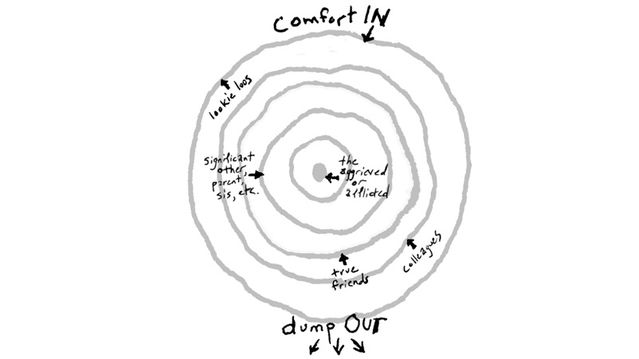
dis·ap·point·ment/ˌnoun
- sadness or displeasure caused by the nonfulfillment of one’s hopes or expectations.
We’ve had a week up in here. On Tuesday, the 15 year old and I were hit by what turned out to be a very drunk driver, on the way to piano. I’m still freaked out and not sleeping, I’m afraid of every single person around me when I drive, and my car is not okay.
Later in the week, another of my kids was handed one of the biggest disappointments of their life thus far. Not the kind of disappointment that you feel when the gelato place is out of your favorite flavor, but the kind that just reaches in and crushes your soul. The kind from which you feel like you won’t recover.
As a parent, I don’t think there is anything harder than seeing your child in pain, of any variety, and not being able to stop it. I really don’t. When our kids hurt, we hurt. And we want to be able to stop it. We want to be able to stop it so badly. But we just can’t.
The best thing we can do (the only thing we can do really) is to be there. To sit with them and to hold their hand until the storm passes. These are six things I’m trying to keep in mind while I help them navigate through this season.
1. Don’t minimize it. Adults do this weird thing sometimes where they act as though kids’ feelings are not as important as their own. Like an adult can feel DISAPPOINTMENT, but a child only feels Disappointment Lite. Their feelings are real. Their feelings are valid. If anything, I think a child’s feelings are even more acute. They are so open and trusting (as opposed to adults, who tend to be at least a little bit jaded), so when that trust is broken, they are cut, and they are cut deeply. They are allowed to feel what they feel.
2. Don’t make it about you. As someone who is both an empath, and who just feels big feelings, I struggle with this. I am predisposed to take things harder than a “normal” person, by virtue of personality, mental illness, and just plain luck of the draw. But their feelings are not MY feelings, and I think it’s important that I remember that. If I make it about me, it simultaneously takes away from their feelings, heaps more on their plate, and minimizes their own pain. (See point 1) I love the “Ring Theory” by psychologist Susan Silk.

The person in the center (in this case, the one feeling the disappointment), can vent to whoever the heck they want to vent to. Those in the subsequent rings can only vent OUT, not in. Meaning it’s never appropriate to dump your own feelings on the person in the center.
3. Commiserate. YES, this sucks. YES, it hurts. YES, I’d be upset too. YES, I’ve been there (but only if you really have.)
4. Let them call the shots. I think that sometimes the first instinct tends to be to try to cheer them up. And while there’s a time and a place for cheering up, to be sure, there’s also a time and place for just feeling what they’re feeling. Do they want to talk about it? Listen. Even if it’s the hundredth time that day. Do they want to distract themselves? Join them. Follow their lead in how they want to handle their feelings.
5. Hold space for them. It took me a long time to come around to the phrase “hold space.” I don’t know why exactly, except that it tends to come with the hyper spiritual woo-woo kind of stuff that doesn’t resonate with me. But I’ve since learned what a hugely powerful thing it is, I think in part due to the people who’ve cared enough to do it for me. Holding space basically means you create an atmosphere in which you can just be there, loving them; to let them have their experience, to validate their emotions, and to make room for whatever it is they’re feeling…. all without judging, critiquing, or trying to “fix” in any way. This is a great little article in layman’s terms.
6. Remind them it will get easier. When I was 5 or 6, I had a cat named Shala. Shala died right in front of us, after choking on a hair ball. I still remember my mom telling me, “I know it hurts, but it’s going to get easier. Every day it’s going to hurt a little bit less.” She was right. Granted, there is a huge range of possibly upsetting events in between a cat dying and being on the receiving end of another kind of calamity, but the principle still stands. Time passes. We learn to move forward. Things hurt a little bit less. It WILL get easier. There are two caveats to this though. The first is that it needs to come when it is time, (ie: not when you’re still firmly in the holding space stage) and not a minute sooner. The second is that some people don’t want to hear this at all, ever, and it doesn’t make them feel better. Know your kid.
Disappointment, hurt, and upset feelings are part of life. There’s no getting around that. But with love, time, and a whole heck of a lot of patience, we can absolutely help our kids work through even the toughest of life’s blows.








